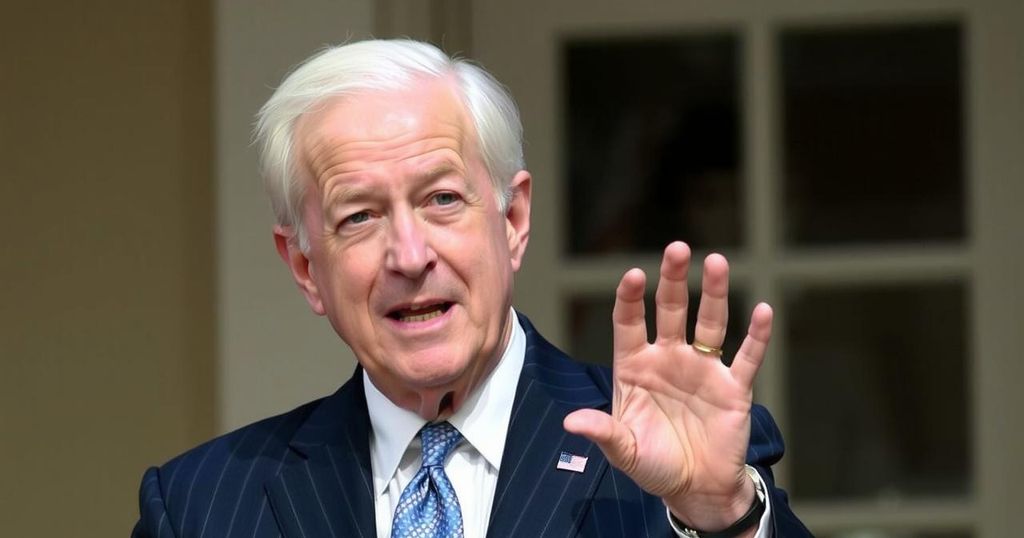Biden Administration Extends Controversial Iran Sanctions Waiver After Election Day

The Biden administration has renewed a significant sanctions waiver allowing Iran access to $10 billion from Iraq, a decision made shortly after Election Day. This extension, supported by Secretary of State Antony Blinken, permits Iran to use the funds for humanitarian purposes, though critics argue it indirectly supports the regime’s malign activities. The continuation of this waiver raises questions about U.S. foreign policy under the incoming Trump administration.
The Biden administration has extended a contentious sanctions waiver allowing Iran access to approximately $10 billion from Iraq, a decision made two days following the recent Election Day. This waiver, which Secretary of State Antony Blinken has renewed multiple times despite substantial resistance from Republican lawmakers, permits Iran to receive funds linked to electricity payments. The State Department confirmed that this waiver has been extended for an additional 120 days, coinciding with the early stages of President-elect Donald Trump’s term.
Under the terms of this waiver, Iran can access nearly $10 billion held in escrow accounts for humanitarian trade, although it has the potential to divert these funds, enabling the regime to purchase non-sanctioned goods via accounts in Oman. It remains uncertain whether the incoming Trump administration will choose to revoke this waiver.
Moreover, the Justice Department recently indicted individuals connected to Iran’s Islamic Revolutionary Guard Corps for attempting to undermine Trump’s electoral campaign. Meanwhile, the State Department underscored that the waiver system was instituted during the previous administration, asserting continuity in policy regarding Iraq’s electricity importation from Iran. Nonetheless, concerns regarding the use of such funds to support terrorism have been voiced by Republican officials, including House Foreign Affairs Committee Chairman Michael McCaul, who criticized the current administration’s continued execution of the waiver despite congressional objection.
The context of this article encompasses the ongoing debate regarding U.S. sanctions on Iran, particularly the sanctions waiver that permits Iraq to procure Iranian electricity. This waiver has provoked considerable controversy among U.S. lawmakers, with some arguing that it indirectly enriches Iran’s government, enabling it to fund hostile activities. The complexity of U.S.-Iran relations, especially regarding sanctions, is further complicated by the differing policies between the Trump and Biden administrations.
In conclusion, the Biden administration’s recent renewal of the sanctions waiver for Iran highlights the complexities of U.S. foreign policy in the Middle East. While this decision enables Iran access to substantial funds, it has ignited significant debate among lawmakers about the potential for such finances to bolster terrorism and undermine U.S. interests. Moving forward, the ramifications of this decision will be crucial to watch, particularly as a new administration takes the helm.
Original Source: nypost.com




